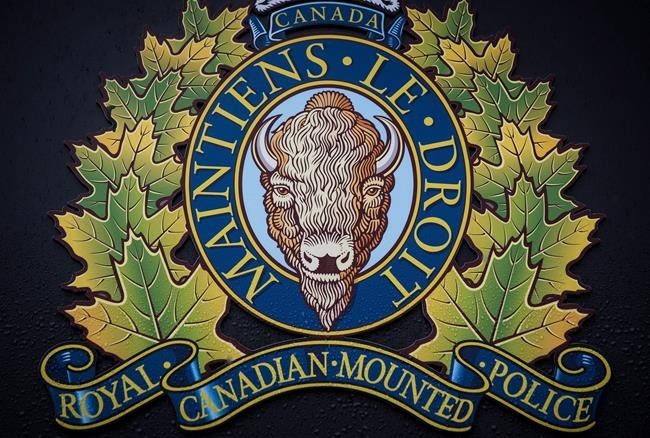OTTAWA ŌĆö The head of the RCMP officers' union says it's time for a basic look at how the national police force can best serve communities across the country.
Such a review could help figure out how many Mounties are needed ŌĆö and where ŌĆö to address problems such as rural crime, said Brian Sauv├®, president of the National Police Federation, which represents 20,000 RCMP members.
"The results of that might mean more police officers, or it might mean fewer or redeployment of police officers, but I think we really need to look at it to see that we're serving Canadians effectively," Sauv├® said in an interview.
The RCMP provides contract policing services to every province but Ontario and Quebec, which have their own forces, as well as the three territories and some 150 municipalities.┬Ā
The prime minister has asked Public Safety Minister Marco Mendicino to carry out an assessment of contract policing in consultation with provinces, territories, municipalities, Indigenous partners other parties.┬Ā
An internal Public Safety sa╣·╝╩┤½├Į memo released two years ago warned the demand for contract RCMP officers was outstripping the national police force's capacity to recruit and train them, causing shortages that have led to officer health and wellness concerns.┬Ā
In turn, there was "growing dissatisfaction" in contract jurisdictions about costs and officer vacancies, and the resulting effect on community safety, the memo said.
Alberta, New Brunswick and Nova Scotia are among the jurisdictions that have floated the notion of creating their own police services.
Sauv├® said the National Police Federation has a role in helping the RCMP explain why sticking with the national police force is the best option, citing survey results that indicate public satisfaction with the services provided to communities.
"The argument that we're not suited for contract policing doesn't hold up when you look at the data behind it," he said.
At the same time, Sauv├® sees a need to examine how resources are deployed and "apply a modern lens" to questions.
"For example, is the geographic area too large to be covered by one or two or three police officers? Do we always have to maintain the existing status quo of where detachments are?" he said.┬Ā
"Can we look at hubbing certain detachments to cover a larger geographic area with more police officers in that particular hubbed detachment? Do we end up with satellite offices?"
Sauv├® points to Manitoba, where there are about 980 RCMP members.
"How did we come up with that number? Did it just evolve over time? Is there a formula?"
He wonders how it meshes with what the public wants, which is an officer to show up when they call 911. "So what's an adequate response time? And how do we deal with that?"
One of the RCMP's advantages is sheer size and the resulting surge capacity, which allows it to temporarily move members between units or detachments to fill gaps, for instance when COVID-19 causes staff shortages, he said.
In a pre-budget submission to the government, the federation recommends spending $190 million to expand recruiting and training of new members, as well as increasing funding in subsequent years.
It also wants additional, specific investments in mental health supports for RCMP members and their families.
Bolstering recruitment to ensure adequate staffing levels will help preserve the overall mental health of the force, Sauv├® said.
"If your membership are overworked and they don't have a work-life balance, their resilience will fade and they become at greater risk for occupational stress injuries or post-traumatic stress."
This report by The Canadian Press was first published Jan. 14, 2022.
Jim Bronskill, The Canadian Press


